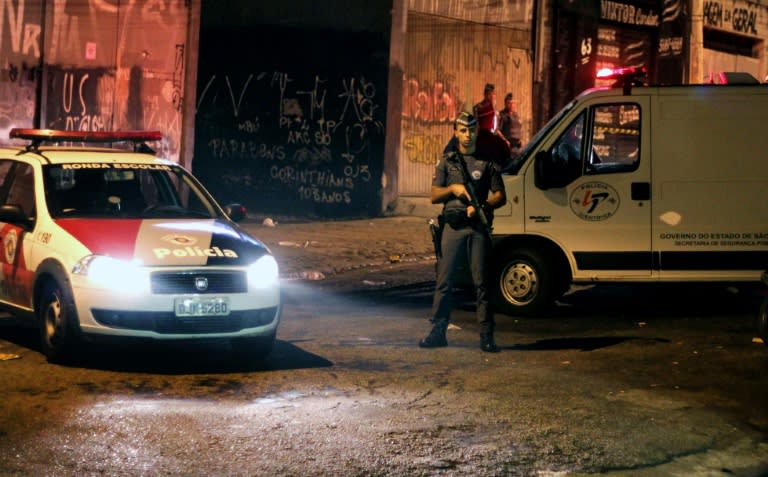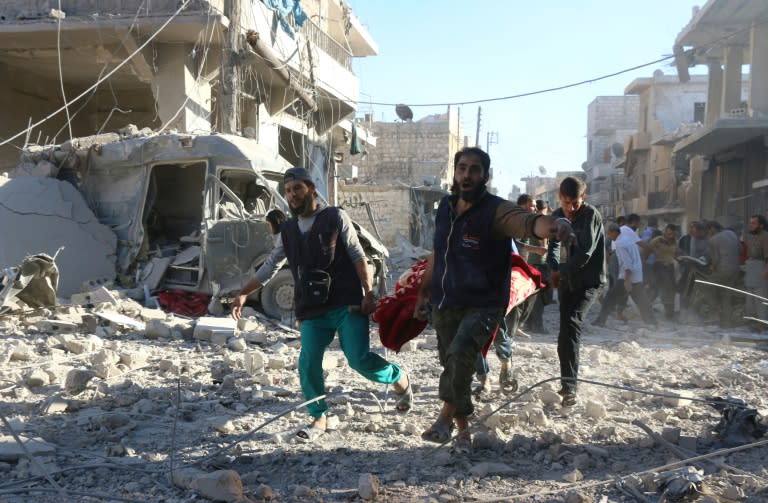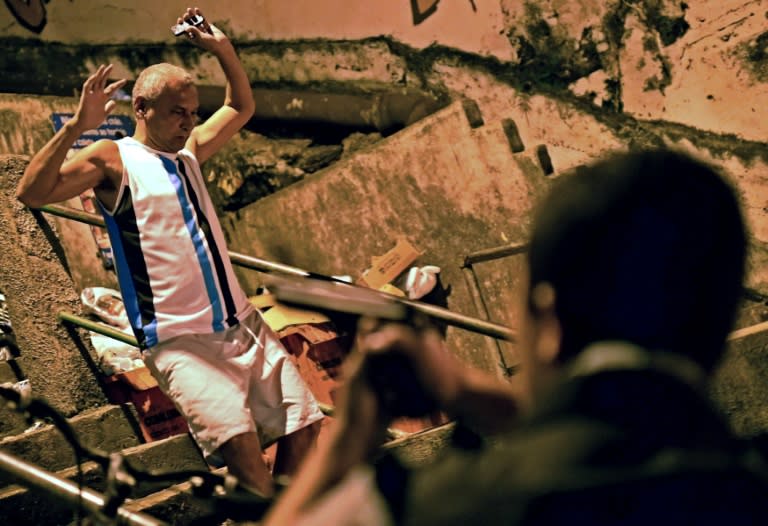Brazil sees more murders in 4 years than Syrian war: study
More people have been murdered over the past four years in Brazil than have been killed in more than five years of war in Syria, a Brazilian group said Friday. Brazil has been struggling in recent years with a rise in violent crime, made worst by a sharp economic downturn and budget cuts to police forces across the country. According to the Brazilian Public Security Forum, nearly 280,000 people were killed in the South American giant from 2011 to 2015. The Syrian Observatory for Human Rights counted 256,124 killed over the same period in that country's civil war. To reach their figure, the Forum included purposeful killings and violent thefts that resulted in death. In 2015 alone, more than 58,000 people were killed. Last year's murder rate reached 28.6 per 100,000 people, much higher than the 10 per 100,000 rate that the United Nations considers the threshold for chronic violence. Three impoverished states in northeastern Brazil - Sergipe, Alagoas and Rio Grande de Norte - reported the highest murder rates. Sergipe alone had a stunning murder rate of 57 per 100,000 people. The overall murder rate however was down slightly from 2014. The forum's report, now in its ninth edition, also highlighted the endemic problem of police brutality. The report said that an average of nine people are killed per day by police. In 2015, law enforcement killed 3,345 people -- but 393 police officers were also killed, about a third of them while on duty. Highlighting the difficulty to maintain law and order are attempts in Rio de Janeiro, population 6.5 million, to crack down on crime for the 2014 World Cup and this year's summer Olympics. Police created controversial "pacification" zones in the city's notorious favelas, or slums, with heavy law enforcement presence. While crime diminished in some areas, money ran dry on the second phase, in which the government was supposed to fund schools and clinics in an effort to turn short-term security gains into long-term ones. The program's main architect, Rio state security chief Jose Mariano Beltrame, resigned in mid-October following gun battles between police and drug traffickers killed at least three people and wounded five.

 Yahoo Finance
Yahoo Finance 


